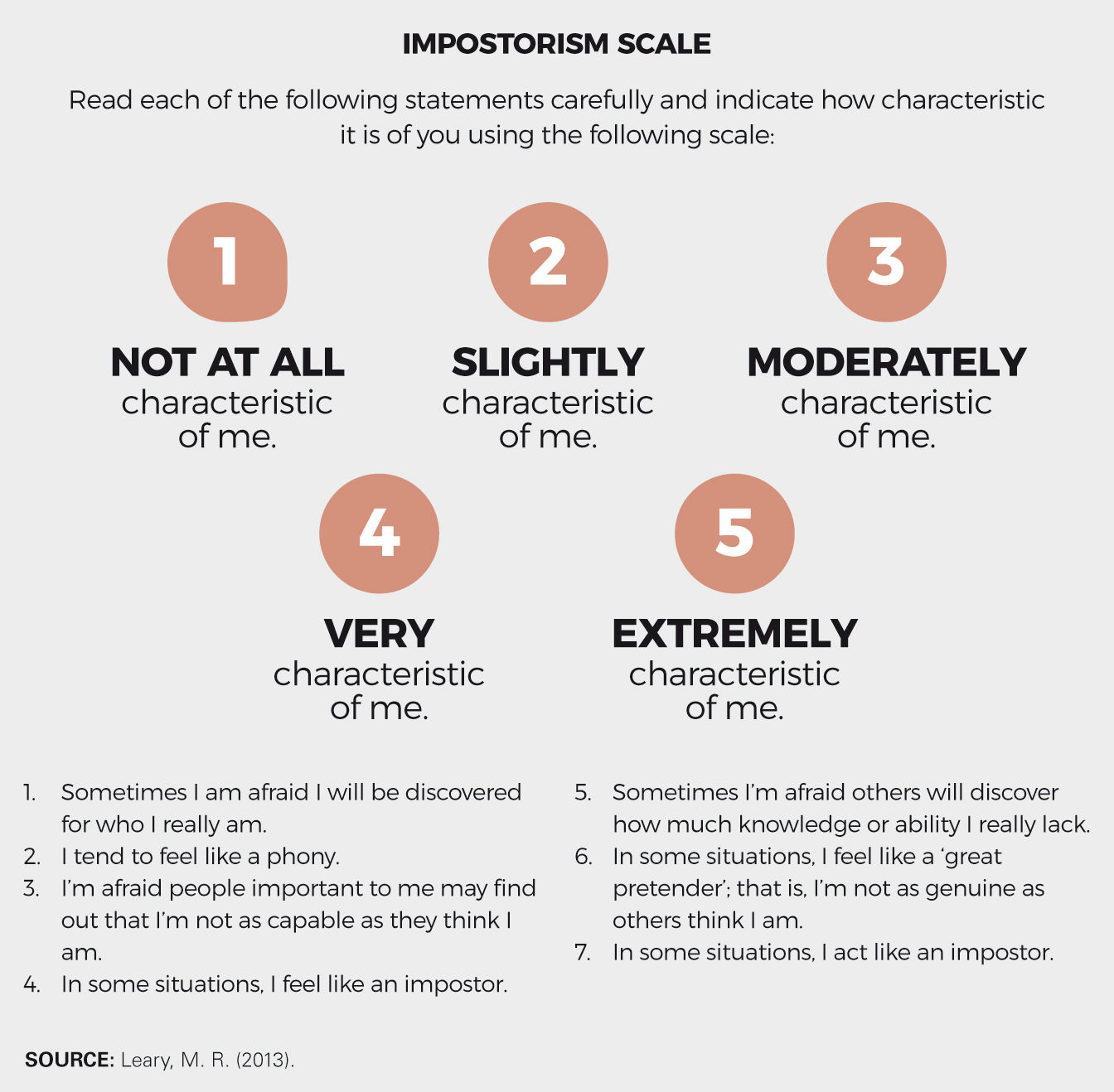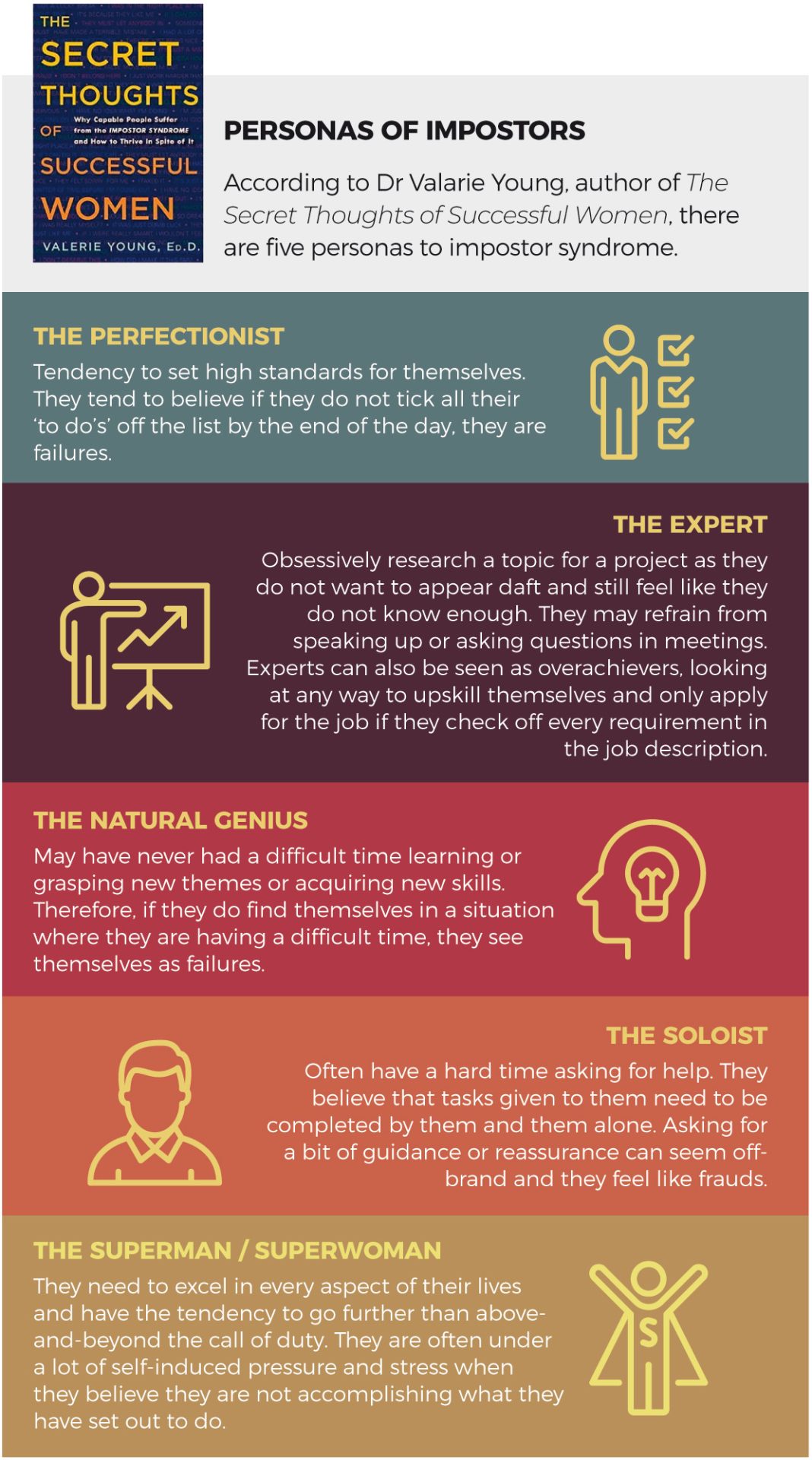Successful Teams Must Banish Self-Doubt
People in finance are more prone to this. Here’s how to beat it.

By The Banking Insight Editorial Team
Long hours, high risk, competitive culture – it’s no wonder that employees in high-risk sectors like finance are reportedly more susceptible to impostor syndrome or impostorism.
ACCA Global’s July 2020 feature, Feel Like a Fake? How to Beat Impostor Syndrome, reports that even before the pandemic, “98% of accountants feel stressed every day and 60% have felt not good enough at their job (i.e. impostor syndrome) in the past 12 months”, one of the highest percentages of impostor syndrome due to the nature and demands of their work. A research paper by Jaruwan Sakulku and James Alexander, published in the International Journal of Behavioral Science, estimates that 70% of the population experience impostor syndrome at least once in their lifetime.
Impostorism is when an individual feels unworthy or inadequate despite clear achievements and accomplishments. It is also when you doubt these achievements although the evidence of your worthiness is all around. Those who experience impostor syndrome often credit their success to luck or other external factors instead of their own hard work; in psychology, it’s termed adopting an external locus of control, i.e. that one’s successes or failures result from external factors, such as fate, luck, or circumstance.
Sakulku and Alexander write: “Individuals with the impostor phenomenon experience intense feelings that their achievements are undeserved and worry that they are likely to be exposed as a fraud. This causes distress and maladaptive behaviour. Initially, the impostor phenomenon was believed to only affect professional women. However, feeling like an impostor seems to be widely experienced. Subsequent research has shown impostorism affects a wide range of people.”
There’s more to understanding impostorism than meets the eye.

Social psychologists Drs Roy McElwee and Tricia Yurak – whose research expands on the work of Prof Mark Leary, co-originator of the Impostorism Scale – break down impostor syndrome into two forms, i.e. strategic impostors versus true impostors (see Table 1).
They report: “Although theory predicts that impostors should report that others view them more positively than they view themselves, recent research has failed to support this hypothesis and suggests instead that impostorism may be used as a self-diminishing self-presentation strategy.”
What this means is that not all people who say they experience impostor syndrome, actually do experience it. Some people – strategic impostors – intentionally project the outward persona of impostor syndrome in order to manipulate or regulate the impressions other people have of them.
Drs McElwee and Yurak iterate that context in this situation is important in distinguishing true impostors from strategic impostors. They emphasise that the impostor phenomenon is very real and synonymous with low self-esteem, eroded confidence, and negative emotions. Thus, it is important not to undermine or negate people who may truly be suffering from it.

Covid-19 has contributed to a rise of individuals experiencing impostor syndrome due to the radical change workers have had to face. However, if managers and team leads are serious on building a successful team, it’s important they learn to understand and spot the signs of impostor syndrome early on to provide timely support to colleagues.
Research shows that impostor syndrome is part of the spectrum of anxiety, depression, and self-esteem issues, all of which can negatively impact performance. People who suffer from such anxiety disorders have difficulty concentrating and exhibit physical ailments like headaches and stomach upset, increasing the risk of prolonged sick leave and time away from work. Behaviour-wise, those who suffer from impostor syndrome also exhibit poor self-esteem and an unwillingness to advocate for themselves.
Studies prove that higher levels of stress and burnout are part of the territory and will likely decrease overall job performance over time. Especially for new recruits starting out in the workforce during the pandemic, imagine how it must feel to be shut in at home alone and thrown into the corporate world without any physical interaction, face-to-face support, and guidance. Or getting a promotion without some aspect of a real-life exchange with only half a team on-site. These seemingly little things can snowball and have a domino effect resulting in lower levels of organisational performance and job satisfaction.
Here’s how the experts say you can spot signs of impostor syndrome:
+ You feel like a fraud. Believing you do not deserve success or praise for your accomplishments. Maybe you feel as though you were hired as a mistake. You find yourself accrediting your feats to luck and all the external factors you can think of other than you.
+ You strive for perfection and try to overachieve. You find yourself completing every task mainly on your own or fixing up work from your peers. You are not always happy with what you put forward and infrequently ask for help as you can perceive it as a weakness. You may find yourself overthinking even the smallest of critiques. Your office or workplace culture encourages friendly competition that may translate to an unhealthy competition to outperform your peers.
+ You are in constant self-doubt. This stops you from living up to your true potential and hindering your possible success.
If any of these personality traits or behaviours resonate with you or anyone you know, overcoming it requires a move in the opposite direction – a spoonful of positivity that leaders and co-workers can inject into their work culture to help out an ailing team member.

Here are some things that you can do:
> Let them know that they are not alone.
> Understand who in your company may be more susceptible. One helpful tool is the Impostorism Scale (see above) developed by Prof Leary, a 7-item instrument focused on determining one’s awareness of being an impostor or fraud.
> Help them understand their cognitions and thoughts. This means they must become more aware of the thought process and catch themselves from getting trapped in a cycle of negativity. This helps deconstruct feelings in a more rational and logical way, enabling them to acknowledge accomplishments and hard work. Remind them that they deserve to be where they are and having a learning curve is normal.
> Incorporate mental health awareness and discuss impostor syndrome on its own. Understand its implications in productivity, devise policies for mental health, and talk about the comorbidities. Destigmatising this phenomenon may make it easier for employees and individuals to be more at ease.
> Build a culture and a positive community in the workplace. It is important to credit and reward work, especially those working from home who may struggle with mental health as they try to navigate the new normal. Therefore, a stronger community in the workplace should be built through team building exercises and emphasising that everyone’s well-being is important.
Remind yourself you are doing your best and if you are just starting out, be kind to yourself. Do not be afraid to ask for help from your peers and managers. Learn to give yourself some time, make mistakes, and constructively learn from them, and understand the context of what you are going through.
This is a much-needed refresher that we are not alone and there are strategies and tips that can be taken to aid with these overwhelming moments that never seem to fade away.
For more information around Impostor Syndrome and the recommendations mentioned, please see the above mentioned ACCA Global and Harvard Business Review article. Further research includes, Prevalence, Predictors and Treatment of Impostor Syndrome: a Systematic Review by Bravata et al., 2020., and Time’s online article, Yes, Impostor Syndrome Is Real. Here’s How to Deal With It by Abigail Abrams.
